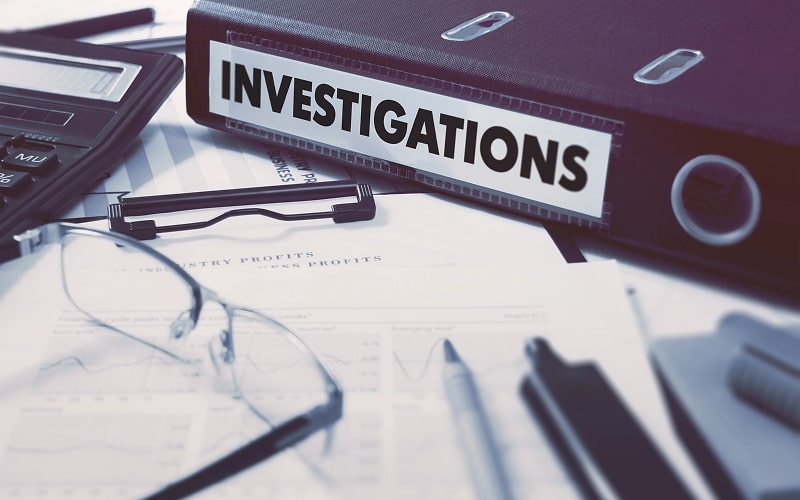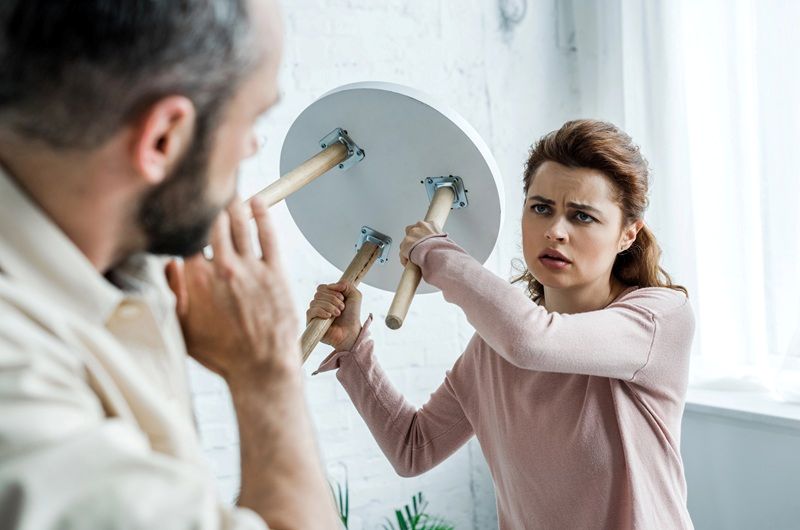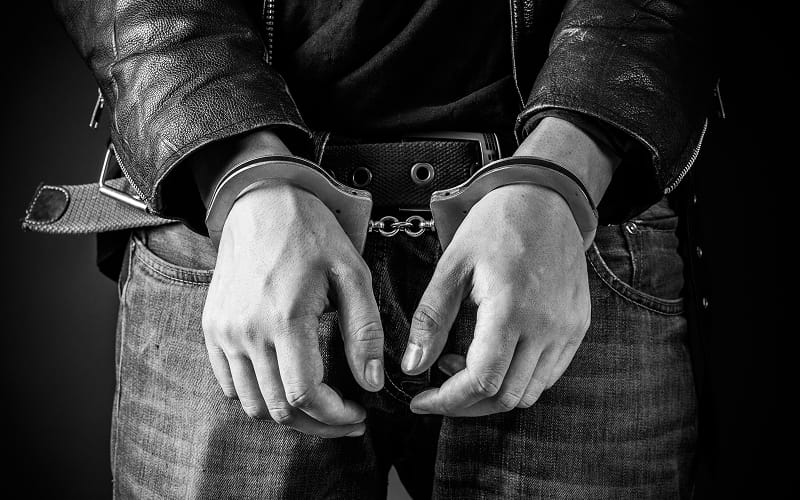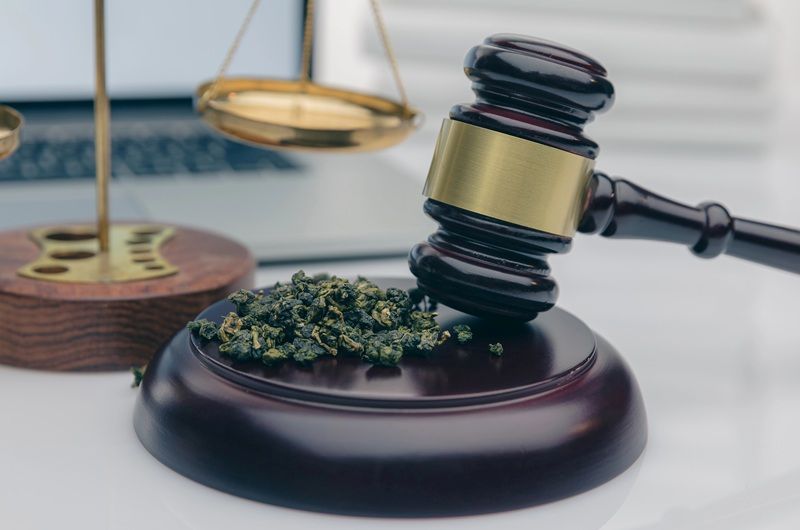A rape allegation can feel like a tidal wave crashing down, bringing serious legal consequences and life-altering penalties. However, understanding the due process and having a skilled Fairfax rape attorney can help you avoid a conviction. Knowing how police investigate can prepare you for what’s ahead and help you take the proper steps to protect yourself.
This article walks you through the weight of rape allegations in Virginia, including the potential penalties you might face. It explores how police in Fairfax County investigate these cases, helping you gain insight into the legal process.

The Weight Of Rape Allegations In Virginia
A rape allegation in Virginia carries serious legal and personal consequences. Law enforcement and prosecutors handle these cases with urgency, moving quickly once an investigation begins. If the case leads to a conviction, you may face:
- Prison sentence – A minimum of five years, with the possibility of life imprisonment in aggravated cases.
- Sex offender registration – Lifetime registration under Virginia’s Sex Offender and Crimes Against Minors Registry.
- Loss of civil rights – A felony conviction can strip you of voting rights, firearm ownership, and other legal privileges.
- Permanent criminal record – A conviction remains on your record, affecting employment, housing, and personal relationships.
With so much at risk, knowing how the investigation and legal proceedings unfold can make a difference. Understanding due process helps you recognize when law enforcement oversteps its authority and protects your rights.
A Look Into The Investigative Process
The police follow a structured process when investigating rape allegations. Each step builds the case prosecutors may use against you. Below are the key steps involved, from the initial complaint to evidence collection and case review.
Initial Complaint & Police Response
The process begins when someone reports an alleged offense. The report may come from the accuser, a third party, or a mandated reporter such as a doctor or counselor. Police document the complaint and assess whether there is probable cause to investigate further.
If the incident is recent, officers may respond to the scene or direct the accuser to a medical facility. They evaluate the situation based on the information provided and determine the next steps. Detectives then take over the investigation.
Interrogations & Witness Interviews
Detectives interview the accuser to document their account of the alleged incident. These interviews are often recorded and may be conducted multiple times to clarify details or address inconsistencies.
Investigators also question potential witnesses, including individuals who interacted with either party before or after the alleged event. They assess whether witness statements support or contradict the accuser’s account. Inconsistencies may prompt follow-up questioning.
If you are under investigation, police may request an interview. They may suggest that speaking with them will help resolve the matter, but their goal might be to gather statements that can be used against you. Remember, you have the right to remain silent and to seek an attorney before answering any questions. Anything you say can be used against you in court.
Search Warrants & Evidence Collection
Police may seek search warrants to gather evidence. They must have one approved by a judge before law enforcement can search your home, car, phone, or other belongings. Investigators collect several types of evidence, including:
- Forensic proofs – DNA, hair, fibers, and injury documentation from Sexual Assault Nurse Examiner (SANE) exams.
- Digital records – Text messages, emails, phone records, social media activity, and surveillance footage.
- Physical evidence – Clothing, weapons, bedsheets, and other objects that may contain biological material.
- Witness Testimonies – Statements from those who interacted with the accuser or accused before, during, or after the alleged incident.
- Police Reports – Documentation of the initial complaint, officer observations, and any prior incidents between the accuser and the accused.
The investigative process can be intricate, and missteps may negatively impact your case. This highlights why hiring an attorney as early as possible is important. Having skilled legal representation ensures that you are not navigating this process alone and that your defense is built from the very start.
How Skilled Attorneys Can Help You
If you are under investigation for rape in Fairfax County, contacting an attorney should be your priority. Law enforcement is building a case against you, and anything you say or do can be used against you. Below are some ways how a lawyer can support you:
- Preventing self-incrimination – Advises you on what to say and ensures you do not make statements that could harm your case.
- Helping you face police interrogations – Represents you during questioning and prevents law enforcement from using deceptive tactics.
- Analyzing evidence – Reviews DNA results, forensic reports, and medical records to identify weaknesses in the prosecution’s case.
- Building a strong defense strategy – Gathers evidence, consults with professionals, and prepares for trial if necessary.
A skilled attorney can help you fight against a conviction. Without legal representation, you risk facing the full force of the prosecution without a strategy to protect yourself. Acting quickly can make a difference in your case.
Aside from these roles, an attorney can also answer questions about the charges against you and what to expect during the legal process. Awareness can reduce uncertainty and help you avoid actions that may negatively impact your case.
FAQs About Rape Charges
Understanding how rape allegations are handled in Fairfax County can help you prepare for what lies ahead. Below are some common questions about the legal process, potential defenses, and what happens after an arrest.
Can The Accuser Drop The Charges After Filing A Report?
No, the accuser cannot simply drop the charges after filing a report. Once law enforcement gets involved, the Commonwealth’s Attorney decides whether to proceed with prosecution.
Even if the accuser no longer wishes to pursue the case, prosecutors can move forward if they believe there is enough proof. They may rely on forensic evidence, witness statements, or digital records to build the case without the accuser’s cooperation.
Can You Appeal A Rape Conviction In Virginia?
Yes, you have the right to appeal a rape conviction in Virginia. It allows you to challenge legal errors that may have affected the trial’s outcome. Grounds for such include improper evidence admission, ineffective legal representation, or constitutional violations.
However, you must file a notice of appeal within 30 days of the conviction. The Virginia Court of Appeals reviews the trial record and legal arguments but does not generally consider new evidence. If the court denies your application, you can petition the Virginia Supreme Court for further review.
Can You Use The Accuser’s Past Relationships In Court?
Virginia’s rape shield law limits the use of an accuser’s past sexual history as evidence in court. However, your past relationships with the accuser may be admissible if they are directly relevant to the case. Courts may allow evidence of prior interactions to support a consent defense or challenge the accuser’s credibility.
Further, the judge must determine if the information is relevant and not meant to harass or embarrass the accuser. Any attempt to introduce such proofs must comply with Virginia Code § 18.2-67.7 (Admission of evidence).
A qualified criminal defense firm understands these legalities and can guide you through the complexities of the justice system. With their support, you can navigate the legal process with a clear strategy, ensuring you take the proper steps to defend yourself against the charges.
Fairfax County Criminal Attorneys Advocates For You

At Fairfax County Criminal Attorneys, we defend individuals facing rape allegations in Fairfax County. We understand the seriousness of these charges and their impact on your life. Our legal team works to protect your rights from the moment an investigation begins.
We challenge unlawful evidence collection, unreliable witness statements, and aggressive police tactics. Our attorneys also review forensic reports, digital records, and interrogation transcripts to identify weaknesses in the prosecution’s case. If law enforcement violated your rights, we fight to have the evidence suppressed.
Moreover, we handle pre-trial negotiations and trial defense strategies. Whether you are seeking case dismissal, reduced charges, or a strong courtroom defense, we tailor our approach to your situation. We prepare every case as if it will go to trial, ensuring no detail is overlooked.
If you are under investigation or facing charges, we are ready to help. Early legal intervention can make a difference in the outcome of your case. Contact our firm today to discuss your defense and protect your future.
Rape is a heavy allegation in Virginia due to the serious legal consequences. A conviction can lead to prison time, sex offender registration, and loss of rights. Fairfax County police follow a structured process from the initial complaint to evidence collection. Prosecutors use this evidence to build their case.
A skilled attorney can challenge improper procedures, analyze forensic findings, and develop a strong defense strategy. If you are under investigation, Fairfax County Criminal Attorneys can protect your rights and secure a more favorable outcome.




